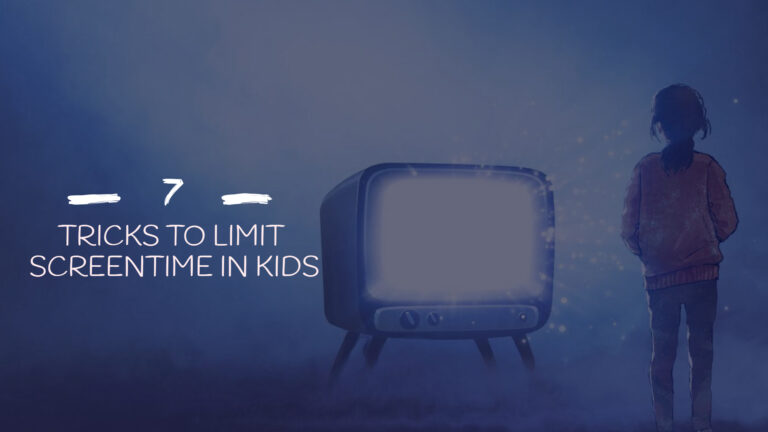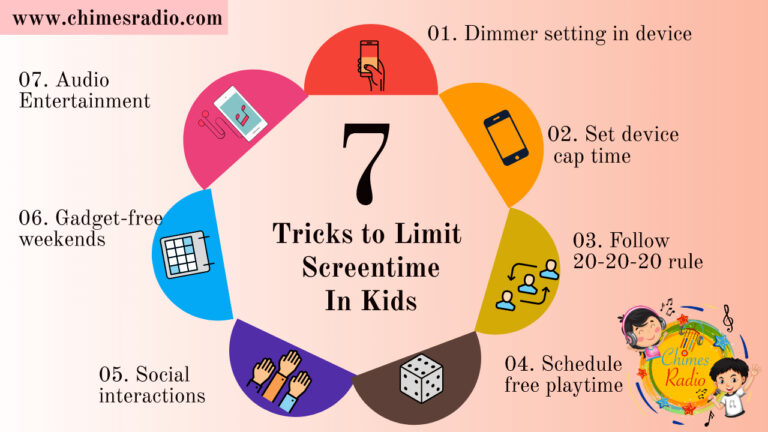Is it really important to limit screen time?
Excess screen-time can be fatal for your kid’s health. Do the right thing and limit it today!

The internet is buzzing with content every day — an endless stream generated on a daily basis to suit every taste, preference, and format that the audience enjoys. This, along with the availability of cheap data and internet connectivity, has led to a massive spike in the “Screen Time” — the short and simple term used to collectively refer to the time user spend watching digital screens across a plethora of devices including mobiles, tablets, laptops, television, gaming consoles, etc.
Undoubtedly, there is some great content that is amazingly entertaining and/or educational but the problem lies when this habit of “screen time” quickly creeps upon an individual and becomes (kind of) an addiction which can be very dangerous, especially for young children. Too much of screen time leave long-term effects on eyes for children.
Initially, though parents think these gadgets as a good distraction to keep the kids engaged while they breathe a sigh of relief, most parents soon start to realize that kids get hooked on to these and form an inseparable bond with. Even feeding meals to kids become a challenge in the absence of some form of digital stimulation.
“Sedentary screen time recommended for kids between 2 and 4 years age and none for kids under 1 year
What we, as a society, need to appreciate while making these choices from an early stage are the severe long-term risks involved for children down this path.
In this scenario of Covid-19, where our mainstream life has morphed into a digital avatar — from office to entertainment and everything in between — so is the case for kids. With schools closed now for more than 5 months due to the pandemic, even the education for children has been conducted online for the last few months resulting in a sharp increase in the time kids spent in front of screens.
At the start of the first lockdown, OLX India in a survey reported 84% of parents being really concerned about the increase in screen time for their wards. Maintaining kid’s focus in this online classroom format for a prolonged time is a big challenge when they are at home and keep getting distracted by everything else that is going on in the house.
Looking into the seriousness of this matter, the HRD Ministry of India also issued the guidelines for different age groups to establish best practices that both schools and parents can follow.
And the views are supported by the medical fraternity too. Renowned Pediatrician, Dr. Parbhjot Malhi, from PGIMER Chandigarh, in his article titled ‘Screen time in under-five children’, argues that while we appreciate the value add of digital technology, especially in the pandemic, in order to continue children’s education and restore some sense of normalcy, but the problem arises when there is an excess of recreational screen time.

Dr. Malhi suggests that children should sit on the table and do their class-work even if they do it through screens. And televisions should not be placed in the bedroom so children can disassociate activities they do in the bedroom from watching TV. Scientific research has conclusively proven that the blue light emanated by screens impair melatonin production which in turn impairs sleep. Dr. Priti Arun, a psychiatrist from GMCH-32 and joint principal of a school in Chandigarh, recommends inculcating reading habits in young kids which can actually help them sleep easily.
We, at Chimes Radio, strongly believe that it is up to parents to strike a balance. Digital screens are a must in this era and now even online education is a core part of daily routines in which parents and children have no other option but to accept it. But smart parenting demands that we also expose our children to alternate ways of engagement and entertainment. Each parent has the benefit of their children at their heart but empowering them with the knowledge of the pros and cons of the available options can help parents make the best decisions for their children.
7 best tips to manage kids screen time to overcome this challenge:
Use dimmer setting in devices:
Make sure, the brightness of the screen is not set to the maximum during your child’s online classes and use the brightness control function on your device to suit the lighting of your room.
Set device cap times:
Wise old people say “Kids do what they observe elders doing”. Therefore if parents themselves cap the time they spent on digital devices, it can really help children to also understand the need and benefits of keeping these habits in check.
Follow the 20–20–20 Rule:
Humans usually blink 15 times each minute but when looking at screens, this frequency can cut down to half which leads to dryness and irritation in the eyes. So to give eyes a good stretch and prevent them from overstraining, we should teach kids to follow the 20–20–20 rule which says that for every 20 minutes spent on the screen, we should look at something 20 feet away for at least 20 seconds.
Schedule free playtime:
Kids should have their own space and time every day away from screens. It is very important for their brain and physical development.
Plan social interactions:
Research has proven that too much dependency on screen can make children unsocial and moody. They tend to lose their interactive skills. As a part of growing up, a child needs to be in interactive surroundings where they get a chance to interact with other kids of their age groups. While this might be a challenge in the pandemic, parents need to ensure they bring this tip back in use when it is safe to do so.
Keep weekends gadget-free:
Weekends are the time when children get their time off from online classes and parents are also free from their work responsibilities. Advance planning can really help you get some great quality time with your kids while keeping kids and yourself away from screens. Chimes Radio daily suggests a new home DIY activity that you can enjoy with your younger one while having oodles of fun.
Audio Entertainment:
Children are a powerhouse of energy and are always seeking fun activities to enjoy. So it is also important to keep the amusement factor going in their life. The use of audio platforms like Chimes Radio, that offer kids safe radio and a variety of podcasts ranging from moral and adventure stories in both English and Hindi, is a great way to keep the entertainment quotient high while helping kids learn new things and expand their imagination.
With life getting busier in offices and at homes and being in nuclear families, parents can get attracted to the somewhat easy way out of letting kids have as much time as they like in front of screens. But we must understand the long term implications that these can have on your child’s health and make informed decisions.

Read our other article:


